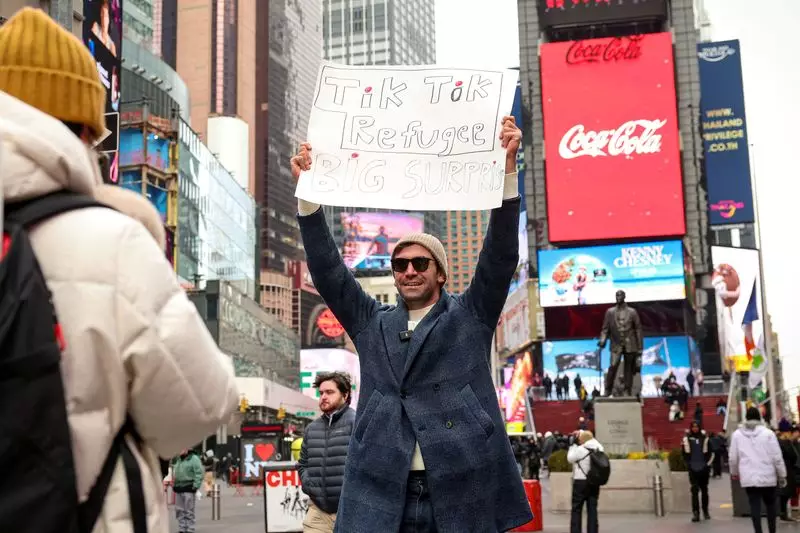TikTok, the Chinese-owned app that has rapidly become a staple of American digital life, faces an uncertain fate amid escalating tensions and regulatory scrutiny. With nearly 170 million users in the U.S., TikTok has revolutionized social media and empowered countless small businesses, but a potential federal ban looms large. As the Biden administration grapples with national security concerns, the platform finds itself teetering on the edge, raising questions about its future and the broader implications for digital culture.
The past few days have seen mounting anxiety regarding the future of TikTok in the United States. A law signed by President Biden in April could lead to the app’s immediate shutdown unless its parent company, ByteDance, divests its U.S. operations or complies with certain conditions. The situation escalated on the eve of the deadline, when TikTok announced its potential blackout in the U.S., indicating that without assurances to tech giants like Apple and Google, it would cease operations. The total revenue at stake is staggering—estimated to reach $20 billion by 2025—which underscores the significant economic implications of a ban.
Legal complexities add another layer to this volatile situation. A recent ruling by the Supreme Court backed the proposed ban, indicating that the legal framework for enforcement is solidified. As of now, companies associated with TikTok could face legal repercussions unless a temporary delay is enacted. This uncertainty has caused a ripple effect across the tech and advertising industries, prompting businesses reliant on TikTok for marketing revenue to scramble for alternatives.
Shifting User Behavior and Market Response
As users grapple with the potential loss of TikTok, many have begun exploring alternatives such as the China-based app RedNote. The mass migration of users points to a critical shift in digital behavior—one that could leave a lasting impact on how social media platforms operate in the U.S. The prospect of TikTok being shuttered has not only sparked concern among its user base, predominantly younger demographics, but also ignited investor interest in competing platforms like Meta and Snap. Their shares have surged in anticipation of TikTok’s user base being redirected toward rival apps.
This situation exposes the vulnerability of systems reliant on singular platforms for advertising revenue. Marketing firms have been put on high alert, some describing their reactions as a “hair on fire” moment, indicative of the widespread anxiety regarding TikTok’s uncertain future. As conventional wisdom fades, the scramble for viable advertising alternatives solidifies the notion that dependence on a single application can be a dangerous strategy in the fast-evolving digital landscape.
The political stakes surrounding TikTok cannot be understated. With President Biden’s administration poised to implement the ban, incoming President Donald Trump has signaled a desire for a political resolution. His rhetoric suggests an interest in finding a middle ground, but specifics on his plan remain vague. The prospect of an executive order delaying enforcement could provide temporary relief for TikTok, as its CEO, Shou Zi Chew, prepares to navigate this complex political landscape.
Moreover, rumors have circulated regarding potential buyers for TikTok’s U.S. operations; names like Elon Musk have emerged behind the scenes, although TikTok officially denies any plans to sell. This intrigue illustrates the corporate interest in TikTok’s robust market presence and serves as a microcosm of the broader tensions between economic ambitions and national security interests.
As the deadline approaches, TikTok stands at a crossroads. With the ever-increasing scrutiny from U.S. authorities and fluctuating user support, the platform’s brilliance in digital engagement and small business empowerment is under threat. Whether a compromise can be reached remains uncertain, but one thing is clear: the landscape of social media in America is likely to undergo profound changes, regardless of the outcome. TikTok’s situation embodies the complexities of a globalized digital economy entangled with national interests, reflecting deeper societal questions about privacy, control, and the influence of technology on culture. The next few days will be pivotal, determining not only TikTok’s future but potentially reshaping the very fabric of American social media.

